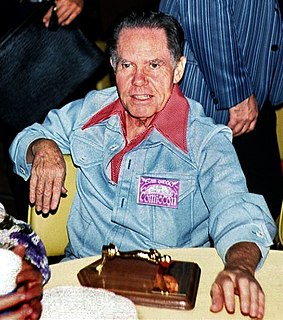A Quote by Vaclav Havel
There can be no doubt that distrust of words is less harmful than unwarranted trust in them. Besides, to distrust words, and indict them for the horrors that might slumber unobtrusively within them - isn’t this, after all, the true vocation of the intellectual?
Related Quotes
For we let our young men and women go out unarmed in a day when armor was never so necessary. By teaching them to read, we have left them at the mercy of the printed word. By the invention of the film and the radio, we have made certain that no aversion to reading shall secure them from the incessant battery of words, words, words. They do not know what the words mean; they do not know how to ward them off or blunt their edge or fling them back; they are prey to words in their emotions instead of being the masters of them in their intellects.
I want you to understand the words. I want you taste the words. I want you to love the words. Because the words are important. But they're only words. You leave them on the paper and you take the thoughts and put them into your mind and then you as an actor recreate them, as if the thoughts had suddenly occurred to you.
You can say anything you want, yessir, but it's the words that sing, they soar and descend...I bow to them...I love them, I cling to them, I run them down, I bite into them, I melt them down...I love words so much...The unexpected ones...The ones I wait for greedily or stalk until, suddenly, they drop.
To blindly trust government is to automatically vest it with excessive power. To distrust government is simply to trust humanity - to trust in the ability of average people to peacefully, productively coexist without some official policing their every move. The State is merely another human institution - less creative than Microsoft, less reliable than Federal Express, less responsible than the average farmer husbanding his land, and less prudent than the average citizen spending his own paycheck.
What we're trying to do in conversational intelligence is not only define that trust continuum for people, not only helping them notice, which is so important, what's happening in them and others when distrust lives, but also how to bring people in trust. When they do, what happens, this part of our brain, the prefrontal cortex is loaded with wisdom, integrity, strategy, insights, empathy, foresight. It's beautiful. It's so designed for that, and often it's turned off because people don't have trust with each other.








































